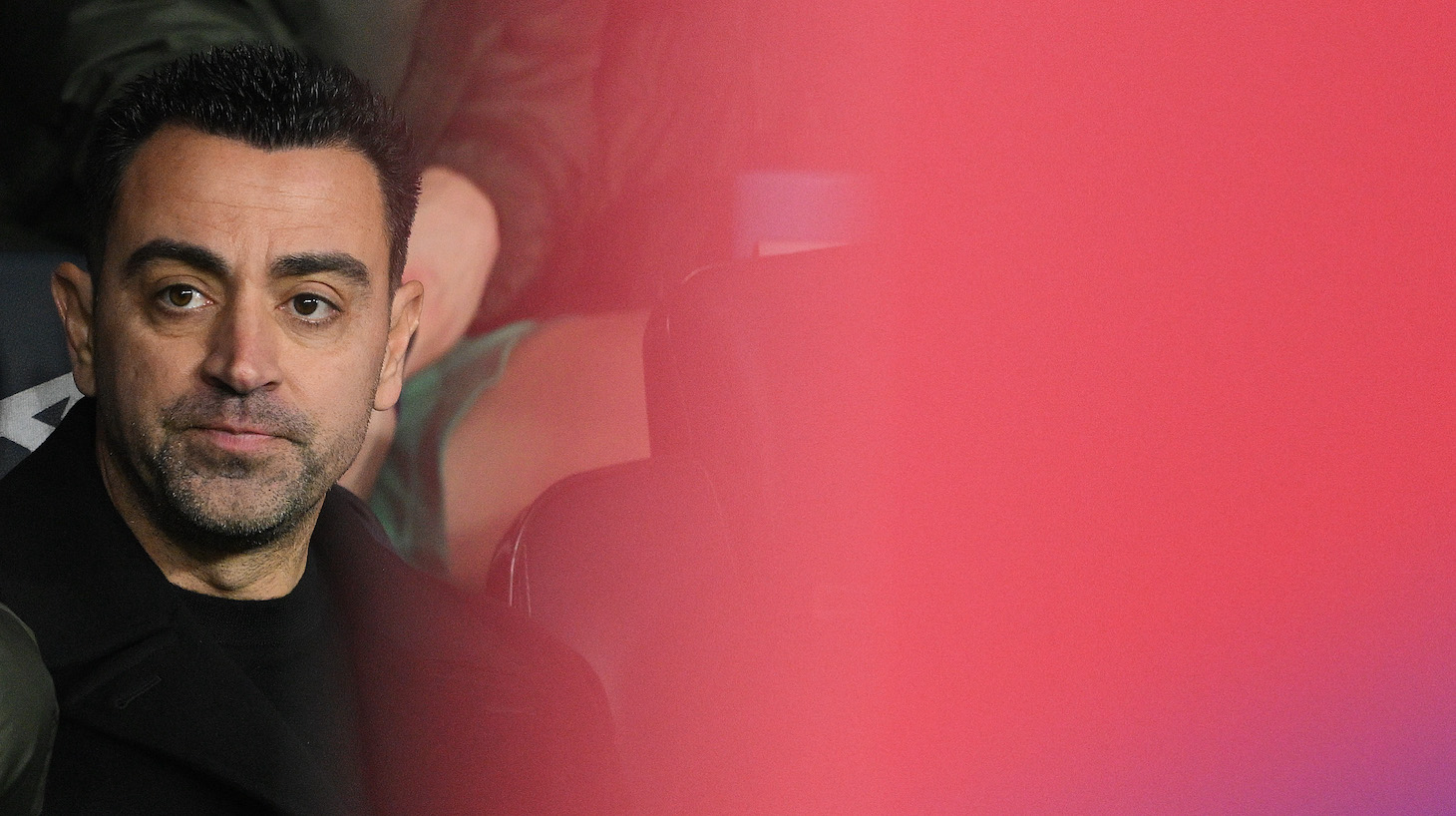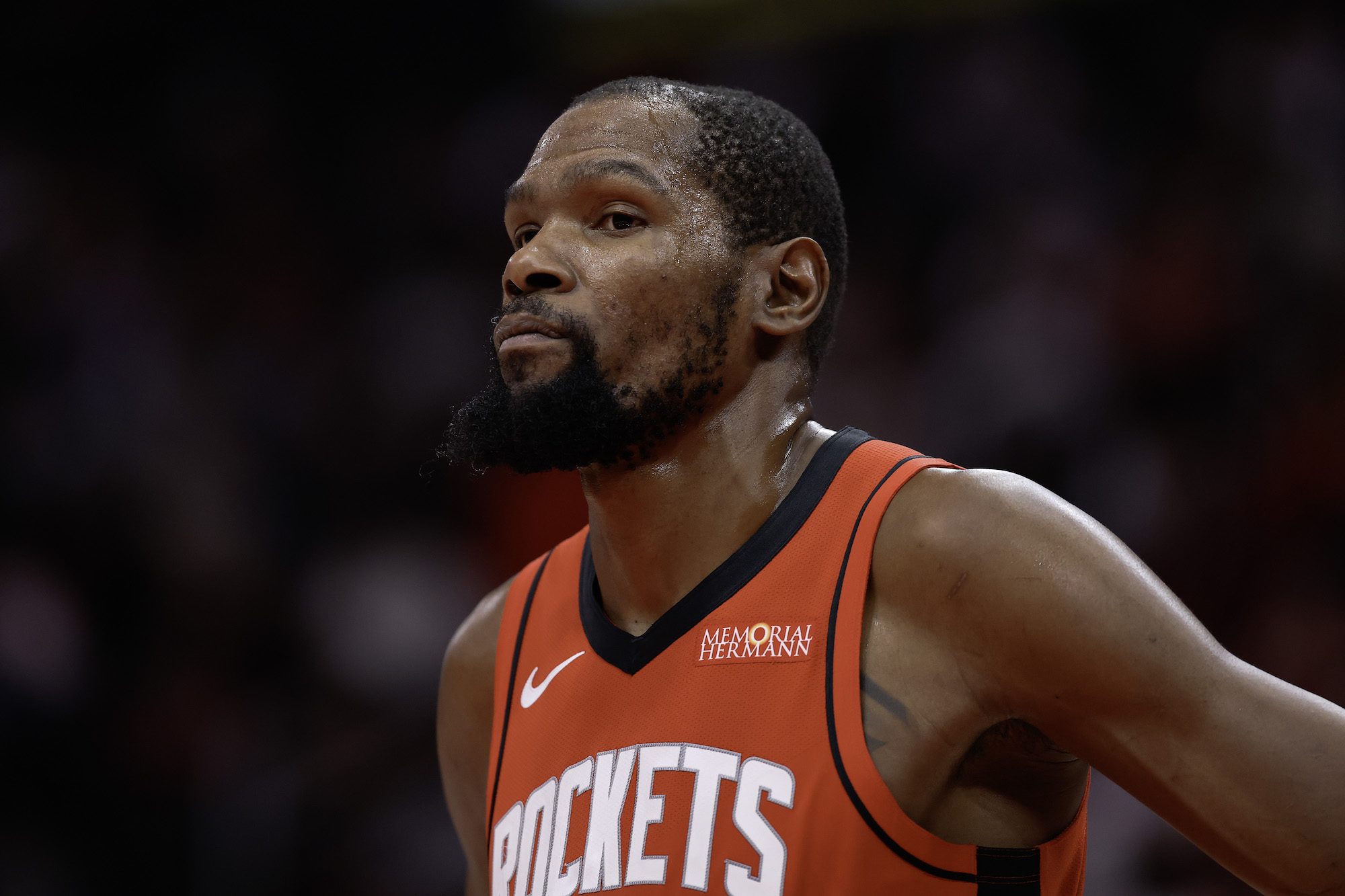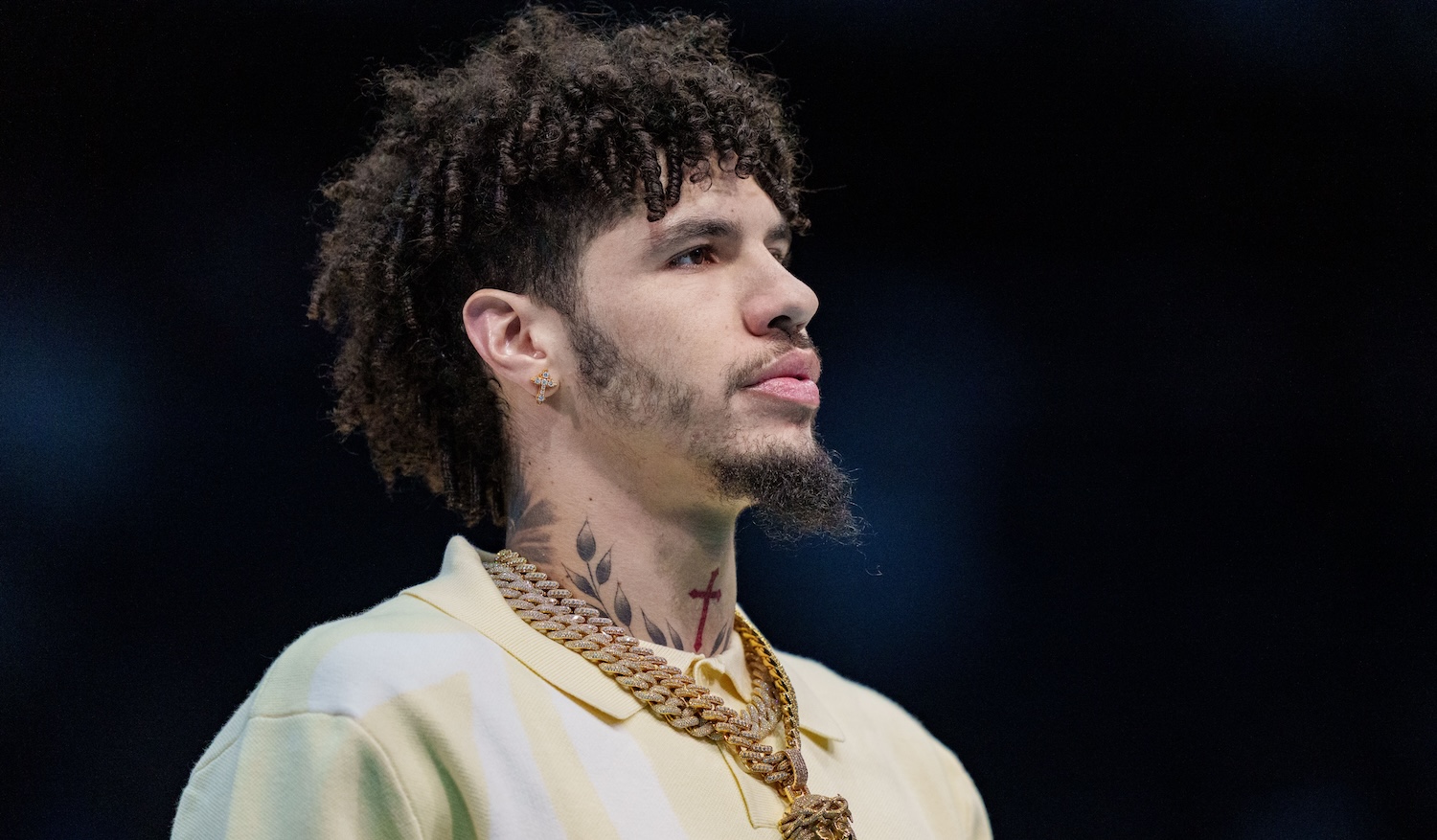It's been evident for at least a couple months now that Xavi's days as Barcelona manager were numbered. The only surprising thing about Saturday's news that Xavi will not manage Barcelona next season was when the news broke and who did the breaking. And yet that particular form of the announcement—Xavi, flanked by his wife and his brother, showing up to the press conference following the latest humiliating Barça defeat and stating that he'd unilaterally decided to step down from his position at the end of the season—says as much about what has happened as the simple facts themselves.
Here's what Xavi said as he announced that was leaving Barça at the end of the season: pic.twitter.com/Pj4LWLYtTo
— FC Barcelona (@FCBarcelona) January 27, 2024
As we've laid out before, there's nothing straightforward about this union between Barcelona and Xavi. His successes as a player at Barcelona, his enduring status as an emblem of the Pep Guardiola era, the ways his links to Guardiola connect him back in totemic chain to Johan Cruyff—there's no understanding Xavi's possession of the Barça coaching job without centering all of that. Any manager not named Xavi Hernández, with the meager managerial experience Xavi had back in Oct. 2021, wouldn't have gotten anywhere near the Barça job in the first place. Any manager not named Xavi Hernández would've been thrown out on his ass months ago, when it was abundantly clear the team was going backwards and there was no reason to trust that the coach could reverse or even halt the skid. But this coach is in fact named Xavi Hernández, and so he has enjoyed ample reserves of faith and goodwill from the players, the fans, and the club itself, until that well finally went dry with Saturday's ugly 5-3 loss to Villarreal.
Even Xavi's resignation cannot be adequately explained without returning to the symbolic realm. In the lead-up to the Villarreal match Xavi, normally confident and optimistic—often to a point bordering on delusion—spoke about the state of his job with uncharacteristic morbidity. It was as if his conceptualization of his managerial tenure at the club had already switched from present to past tense. Here's how he responded to questions about his job potentially being in jeopardy, from ESPN:
"I have been in the job for over two years and I have less time than more left, if you look at the precedents. Pep [Guardiola] was here for four years; Luis Enrique for three. The point will arrive when I go, don't worry."
[...]
"At this club, we always value people when they are about to leave," he continued. "Now we value [Ernesto] Valverde, [Ronald] Koeman, [Sergio] Busquets, when he was massacred in his final years here.
"[Jordi] Alba, too. It is something to reflect on. I hope you miss me, too. I can value what I have. I am at the best club in the world, I appreciate coming to work, I am happy. I know the demands are high, but I value things in the moment, not after.
You can find in the above comments some hints to what Xavi might've been after by resigning on Saturday. There are two ways of reading his resignation. The first sees it as a truly selfless act of the culé par excellence, a man who so deeply cares about the club that he'd be willing to rob himself of that which he most wants so that Barcelona might thrive. The second view is more cynical.
Maybe Xavi knew he was close to being fired. Of arguably even more importance, maybe Xavi figured the fans' goodwill had finally run out, and that the relationship of adoration that had defined his life as a public figure was on the verge of being seriously and irrevocably marred. Maybe he saw an opportunity to act first with this delayed resignation, and in doing so to win twice: winning back the fans, who would love him all over again for his selflessness, and winning the right to coach out the rest of the season, ensuring that when he leaves it will be on his own terms.
And who knows, maybe Xavi even hopes that, released from the pressure (which now falls squarely on club president Joan Laporta, who will find it difficult to fire Xavi now even if things don't improve) and benefitting from the inherent capriciousness of the sport, he potentially could lead what is still a very talented Barça team to Champions League glory. And, should Xavi take Barça to a shock European title, would anyone really want to hold the triumphant manager to his word about resigning, when that selfless word, uttered in a low moment, inspired the turnaround?
My hunch is that the truth is somewhere in the middle. I believe Xavi genuinely does want what's best for the club, and that, when it finally became undeniable that what's best for Barça is not him leading it, he would be willing to fall on his sword. However, I also believe there's more going on here than what first appears, which would befit a situation so defined by subtext.
For a long time, Xavi's main desire for his post-playing career seemed not so much to become a manager, but rather to become the Barcelona manager. It would make sense if he'd heard the talk about him being the chosen one, the heir apparent in the hallowed Guardiola-Cruyff lineage, repeated so often over the years that he started to believe it as well. That could explain why he felt a managerial apprenticeship undertaken solely in the hardly rigorous environs of the Qatar Stars League would prove sufficient preparation for one of the biggest jobs in the game. It could likewise explain why, when he got the Barça job and it came time to build out his staff, he decided against bringing in an established and proven second-in-command to supplement his thin experience and instead gave the role to his own brother. It makes sense, too, of his stubborn repeated insistence that only bad luck or the poor enactment by the players of his infallible instructions could explain why the team underperformed. If you believe yourself to be the subject of a prophecy, it's easy to see the world in terms of destiny and fate and other arcane machinations that, of their own mystical force, determine whether you will or will not attain that which was foretold.
"We always value people when they are about to leave," Xavi said, just a few days before he announced he was about to leave. He instructed us to "look at the precedents" before citing Guardiola, Luis Enrique, Sergio Busquets, and Jordi Alba, four of the most successful and iconic figures in Barcelona history. Tellingly, Xavi also snuck in Ernesto Valverde and Ronald Koeman in that list of Barça legends. Valverde and Koeman were also Blaugrana players-turned-managers, whose managerial stints were stained by fan unrest toward the end, which—contrary to Xavi's spurious claim that time has softened harsh public assessments of their tenures—probably did permanent damage to their reputations at the club. Xavi's attempt to rehabilitate the images of Valverde and Koeman comes off as a preemptive effort to do just that for his own.
Even in the end, Xavi is trying to weave himself into Barcelona's storied history, picking up threads from successful times and knitting together a tale of disrespect, unfairness, glory, and eventual redemption. It may prove the savviest act yet of his entire managerial career. Xavi may not wind up being the heir to Guardiola and Cruyff, but he is determined to be the one to write his own story, and to make sure it has a happy ending, even if that means writing it as an epitaph for himself. "I hope you miss me, too," Xavi added, more or less making the whole gambit explicit. And it's worth remembering that he isn't gone just yet.






